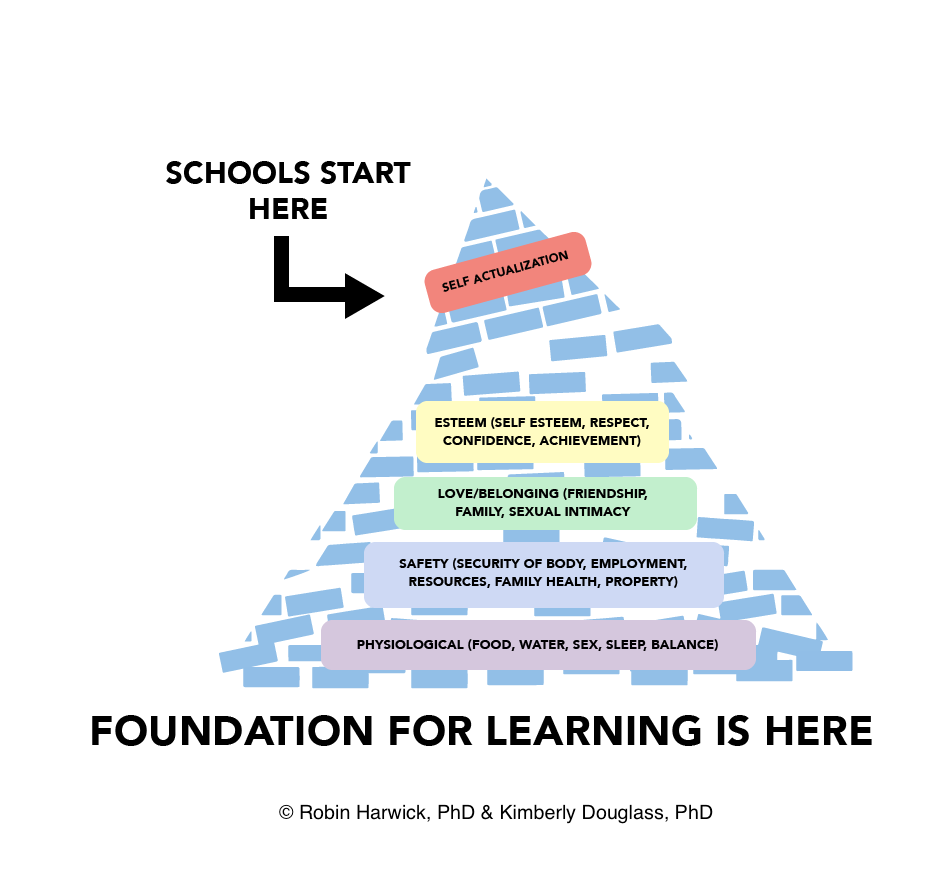This article is presented by The Pearl: Remote Democratic High School. The Pearl is an online high school that offers synchronous classes taught by expert instructors. We have small class sizes, allowing for individualized time with the instructor, so students have the opportunity to develop their learning around topics that they’re passionate about.
Teaching to the Test Harms Students
Standardized tests are only useful for measuring standardized minds. However, humans are not standardized, nor do we want them to be. If you think about it, pressuring students to do well on standardized tests is a strange way to measure success. Why would we want everyone to learn the same content or take the same path? One thing that makes the world a rich and beautiful place is that we all have different strengths and ideas to bring to the table. It is misguided to create an educational system where each student is only supposed to learn prescribed content.
Sometimes the most brilliant and intelligent minds do not shine in standardized tests because they do not have standardized minds- Diane Ravitch
Hyper focusing on teaching a narrowed curriculum to improve test scores is dangerous. As the world changes and humanity faces problems never faced before, such as climate change, we need creative and innovative solutions. We need students to learn how to problem-solve, collaborate, pivot quickly when new situations arise, and we need compassionate leaders.
Additionally, many of the jobs that will be available to current K-12 students do not exist now. It is impossible to know the exact skills that these jobs will require, highlighting the need for creativity, flexibility, and adaptability. Assets that are not currently rewarded in most schools. Instead, these critical strengths are suppressed, and students suffer. Our society will suffer too.
The narrowing of the curriculum for the benefit of high scores on standardized tests doesn’t promote the development of cognitive abilities. Additionally, it stifles teachers. They can’t teach a breadth of topics because they fear that their students won’t score as high on the standardized tests.
What about all the issues that aren’t being explored in the narrowed curriculum? Are they less important in our current time than they were previously? What about the students who aren’t interested in the particular topics forced upon them? Many of these students disengage from school, and no amount of trying to force them to prepare for the test will change that.
When students don’t get to explore their interests, they don’t have the opportunity to learn what they are good at or to find their passions. It’s detrimental to students to say if you can’t learn what I am teaching you; in the way I teach it for this particular test; then you can’t learn. It’s not true, but many students internalize the message, and we fail as educators. Instead of creating lifelong learners, we turn students off from learning — 24% of Americans didn’t read a single book last year. While literacy rates contribute to this (which also doesn’t bode well for our current educational system), I’ve heard personal stories of how a harrowing schooling experience contributed to young people’s hatred of books.
Humans start life with a natural curiosity; if you let children play and explore, they remain curious. However, schools take away curiosity from students by compartmentalizing their learning and offering a lot of content that isn’t personally meaningful, then constantly reinforcing that only the prescribed curriculum is valuable. When schools extinguish curiosity, some people never recover it.
When people lose their inquisitiveness and haven’t developed critical thinking skills, they are more likely to be lead astray. The COVID-19 pandemic demonstrates the inability of many people to comprehend basic science and statistics, which contributes to the US having the highest death rate in the world. Additionally, how easily people buy into “fake news” highlights the need for students to have opportunities to develop critical thinking skills and encouragement to seek out information that goes beyond sound bites and memes.
Building critical thinking skills requires time. Time to contemplate, to explore multiple sources, to wrestle with difficult concepts, and hard to digest information. Traditional schools don’t allow space for this, every minute is planned, and teachable moments are frequently missed because teachers feel like they cannot deviate from the standardized curriculum. This structure teaches students to keep moving forward even if they don’t have all the information or completely understand what they are studying.
A narrow curriculum makes no sense when there is unlimited content available to students online. Kids are already using the internet to learn what they want to know. Students who are not interested in the scant offering of content in traditional school settings may spend their time learning about other things in their free time, such as building a computer, programming video games, or how to cook. In doing so, they gain a tremendous amount of knowledge, but if they don’t do well on a standardized test, they are told they are academically inferior.
Even though students independently acquired knowledge online, if it doesn’t fit within the standardized curriculum, they are told they are “bad” students. What kids often hear is that they are stupid. Over time, many begin to feel stupid because they believe they can’t learn what they are being told to learn, instead of attributing it to their lack of interest or poor teaching. The students start to think that what they are supposed to learn in school is what counts. Why wouldn’t they? This negative narrative is what teachers and frequently parents tell them. How many people tell them that what they are learning on their own when they follow their passions is awesome, valid, and useful? Who rewards them for spending their free time learning?
The negative messages received affects students’ identity and self-esteem. As educators, we often refer to Maslov’s Hierarchy of Needs; we also start at the wrong place. The figure below was designed for the book; You Are the Revolution: Education that Empowers your Black Child and Strengthens your Family, which I co-authored with Dr. Kimberly Douglass. In the book, we highlight how for many students, the foundation for learning (physiological needs, safety, love, and self-esteem) is crumbling. We know that learning cannot occur if the foundation isn’t in place. Yet, schools mandate that educators dive in and focus on self-actualization (i.e., reaching your full potential, developing your abilities, and appreciating life).

Taking it a step further, while schools are supposedly targeting self-actualization, they rarely provide a space where students can do that. Frequently, students receive the message, “I will tell you what is important and what you need to learn, how to learn it, and how to prepare for this test.” This approach is utterly contrary to helping them reach their potential, building their strengths, and supporting them as they create the life they want for themselves. People must create a life that brings them joy; it cannot be dictated to them.
Our society hasn’t prioritized taking care of the basic needs at the bottom of Maslov’s pyramid. We are also not providing space in traditional schools for self-actualization, which in theory, should be a benefit of obtaining an education. For example, the breadth offered within a liberal arts curriculum allowed students to explore and learn more about the world and then choose their career path. However, time for exploration isn’t possible in the narrow curriculum catering to the demands of standardized testing.
Let’s hope we are at the tipping point, and standardized testing loses its stranglehold on the educational system. Many universities are no longer requiring ACTs or SATs for admission, although some say it is only temporary due to COVID-19 shut down of test centers. State lawmakers also realize that standardized tests put unnecessary pressure on students. Matt Miller, a school superintendent in Ohio, stated, “… I think students even have a higher level of anxiety, and so why put that extra burden on right now on the backs of our kids and on the backs of our teachers.”
The COVID-19 pandemic has forced radical changes in how we educate and paused standardized testing for many students. Let’s use this moment as a catalyst for the radical shift that educators and researchers know is needed. It’s time to ditch standardized testing and focus on building creativity, critical thinking, compassion, and community in our schools. After the pandemic is over, let’s move forward, let’s not go back to a system that was not benefiting many of our kids.
Photo by Callum Shaw on Unsplash




